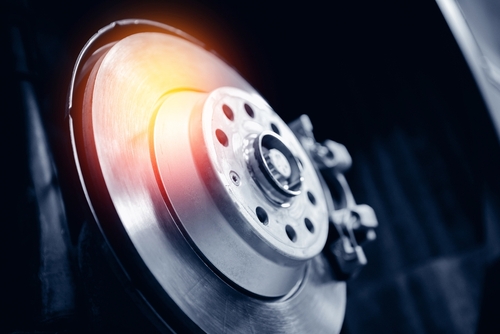Understanding Brake Systems in European Cars

When it comes to European cars, one of the most critical components to understand and maintain is the brake system. European cars are known for their high-performance capabilities, and their brake systems are no exception. With advanced technologies and intricate designs, European car brake systems require specialized attention to ensure optimal performance and safety on the road.
The Importance of Brake Systems in European Cars
Brake systems are an essential safety feature in any vehicle, but they are especially crucial in European cars due to their high speeds and superior handling capabilities. The brake system in a European car is designed to provide precise and responsive stopping power, allowing drivers to maintain control in even the most challenging driving conditions. Without a properly functioning brake system, the risk of accidents and injuries significantly increases.
European car brake systems are typically equipped with advanced features such as anti-lock braking systems (ABS), electronic brake-force distribution (EBD), and brake assist. These technologies work together to ensure smooth and efficient braking, even in emergency situations. Regular inspections and maintenance are essential to keep these systems operating at peak performance and prevent potential malfunctions on the road.
Common Brake System Components in European Cars
European car brake systems consist of several key components that work together to ensure safe and reliable braking. These components include:
1. Brake Pads: Brake pads are responsible for creating friction against the brake rotors, resulting in the vehicle coming to a stop. Over time, brake pads wear down and need to be replaced to maintain optimal braking performance.
2. Brake Rotors: Brake rotors are metal discs that rotate with the wheels. When the brake pads press against the rotors, friction is created, causing the vehicle to slow down or stop. Like brake pads, brake rotors can wear down over time and may need replacing.
3. Brake Calipers: Brake calipers house the brake pads and press them against the brake rotors when the brake pedal is applied. Calipers can become corroded or damaged over time, leading to reduced braking performance.
4. Brake Lines: Brake lines are responsible for transporting brake fluid from the master cylinder to the brake calipers. Over time, brake lines can develop leaks or become corroded, resulting in decreased brake fluid pressure and potential brake failure.
5. Brake Fluid: Brake fluid is essential for transferring hydraulic pressure from the master cylinder to the brake calipers. Brake fluid should be checked regularly and replaced as needed to maintain proper brake function.
Regular Inspections and Maintenance for Optimal Brake Performance
To ensure optimal brake performance and safety, it is essential to have your European car’s brake system inspected and maintained regularly by a certified technician. During a brake inspection, a technician will check the condition of the brake pads, rotors, calipers, lines, and fluid to identify any potential issues that may affect braking performance.
Regular brake maintenance may include brake pad and rotor replacements, brake fluid flushes, caliper adjustments, and brake line repairs. By staying on top of brake maintenance, you can prevent costly repairs and potential brake system failures on the road.
Signs of Brake System Issues in European Cars
It is essential to be aware of common signs of brake system issues in European cars, as addressing these issues promptly can prevent potential accidents and injuries. Signs of brake system issues may include:
– Squealing or grinding noises when braking
– Vibrations or pulsations when braking
– Soft or spongy brake pedal
– Brake warning light illuminated on the dashboard
– Longer stopping distances
– Pulling to one side when braking
If you experience any of these signs, it is crucial to have your European car’s brake system inspected by a qualified technician immediately. Ignoring potential brake system issues can lead to further damage and compromise the safety of your vehicle.
Summary
Understanding the complexities of European car brake systems and the importance of regular inspections and maintenance is crucial for optimal performance and safety on the road. By staying proactive with brake system maintenance and addressing any potential issues promptly, you can ensure that your European car’s brake system operates at peak performance and provides reliable stopping power when you need it most.
